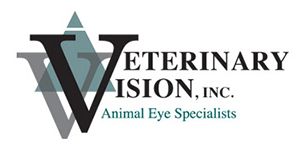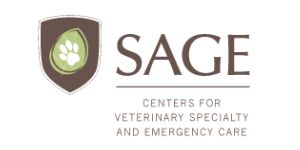Protect Your Furry Friend: Common Household Dangers During National Pet Poison Prevention Month (Hillsborough, CA)
For many pet parents, the hustle and bustle of daily life, it's easy to overlook the potential dangers that lurk within the familiar comforts of our homes. March serves as a timely reminder to be extra vigilant, as it's National Pet Poison Prevention Awareness Month. This crucial initiative highlights the importance of safeguarding our pets from everyday household items that can be surprisingly poisonous. While we strive to create a loving and safe environment for our animal companions, even seemingly harmless objects can pose a serious threat to their health if ingested. By understanding these common household hazards and recognizing the signs of pet poisoning, we can take proactive steps to ensure a happy and healthy life for our beloved pets.
Everyday Toxins: Unmasking Common Household Dangers for Pets
Our curious canine and feline companions explore the world with their noses and mouths, and unfortunately, this inquisitive nature can sometimes lead them to ingest harmful substances. Many seemingly innocuous household items harbor hidden dangers for our pets, and it's crucial to be aware of these potential threats to prevent accidental poisonings.
Here's a closer look at some everyday toxins that can be hazardous to pets:
-
Over-the-counter medications: Pain relievers like acetaminophen and ibuprofen, along with antidepressants and other human medications, can be highly toxic to pets if ingested. Even small doses can cause serious health problems, including liver and kidney failure.
-
Household cleaners: Bleach, disinfectants, detergents, and other cleaning products contain harsh chemicals that can irritate your pet's digestive system, skin, and eyes.
It's important to remember that never use any cleaning products on your pet that are not specifically formulated for animals.
-
Houseplants: While many houseplants beautify our homes, some popular varieties are poisonous to pets. Lilies, tulips, azaleas, and oleanders are just a few examples of plants that can cause vomiting, diarrhea, and even kidney failure in pets if ingested.
Before bringing any new plants into your home, thoroughly research their potential toxicity to animals. The American Society for the Prevention of Cruelty to Animals (ASPCA) provides a comprehensive list of toxic and non-toxic plants for pets.
-
Foods: Certain foods that are perfectly safe for humans can be detrimental to our furry friends. Chocolate, grapes, raisins, onions, and xylitol (a sugar substitute often found in sugar-free gum and candy) are all toxic to pets and can cause a range of health problems depending on the amount ingested.
By familiarizing yourself with these everyday toxins and keeping them out of reach of your pet, you can significantly reduce the risk of accidental poisoning. Remember, prevention is always better than cure.
Recognizing the Warning Signs: When to Seek Help for Potential Pet Poisoning
Even the most cautious pet owner can encounter situations where their furry friend ingests something harmful. Recognizing the early signs of pet poisoning is crucial for seeking timely veterinary care and ensuring your pet's well-being. Here are some key signs to watch out for:
Digestive issues: Vomiting, diarrhea, and excessive drooling are common signs of pet poisoning. The presence of blood in vomit or stool can indicate a more serious situation and warrants immediate veterinary attention.
Behavioral changes: Lethargy, weakness, and unusual behavior, such as excessive vocalization or hiding, can signal that your pet is feeling unwell. Pets experiencing poisoning may also exhibit confusion, disorientation, or seizures.
Difficulty breathing: If your pet is struggling to breathe, has rapid or shallow breathing, or exhibits pale gums, it's a critical sign of potential poisoning and requires immediate veterinary intervention.
Remember: Early action is critical! If you suspect your pet has ingested something poisonous, do not wait for them to exhibit symptoms. Immediately contact your veterinarian.By acting swiftly and recognizing these warning signs, you can significantly increase your pet's chances of a full recovery from potential poisoning.
Safeguarding Your Pet: Proactive Steps to Prevent Poisoning at Home
While unexpected situations can arise, taking proactive measures significantly reduces the risk of accidental pet poisoning. Here are some essential steps you can implement to create a safe and secure environment for your furry companion:
Secure medications and cleaning products: Always store medications and cleaning supplies in cabinets or on high shelves that are out of reach of your pet. Consider using childproof locks on cabinets for added security.
Research plant life: Before bringing any new plants into your home, thoroughly research their potential toxicity to animals. Utilize resources like the ASPCA's list of toxic and non-toxic plants to ensure the safety of your pet.
Keep human food out of reach: Food scraps and leftovers can be tempting for pets, but many human foods are harmful to them. Dispose of food waste properly and avoid leaving food unattended on counters or tables.
Supervise your pet: Closely monitor your pet, especially during playtime and walks, to prevent them from ingesting unknown objects or plants.
Educate yourself and your family: Familiarize yourself and your family members with common household toxins and their potential effects on pets. Keep the contact information for your veterinarian and the ASPCA Animal Poison Control Center readily available in case of an emergency.
By implementing these simple yet effective preventive measures, you can create a safe and healthy environment for your beloved pet and minimize the risk of accidental poisoning. Remember, an ounce of prevention is truly worth a pound of cure when it comes to safeguarding the well-being of your furry friend.
4Paws Mobile Veterinary Services: Creating a Safe Haven for Your Furry Friend
National Pet Poison Prevention Month serves as a timely reminder of the potential dangers lurking within our homes, even for the most vigilant pet owners. By understanding common household toxins, recognizing the signs of poisoning, and implementing preventive measures, you can significantly safeguard your pet's health and well-being.
If you have any concerns about your pet's health or suspect they may have ingested something harmful, don't hesitate to seek immediate veterinary attention. The experienced team at 4Paws Mobile Veterinary Services in Hillsborough, Redwood City, Palo Alto, and the surrounding areas is dedicated to providing your pet with prompt and compassionate care. Contact us today to schedule an appointment and ensure your furry friend receives the best possible veterinary care.
By accepting you will be accessing a service provided by a third-party external to https://4paws.vet/
Reply STOP to unsubscribe from SMS messages. Messaging and data rates may apply. Privacy Policy.
© 2026 4Paws Mobile Veterinary Services | Veterinary Marketing & Websites by Vetcelerator.










